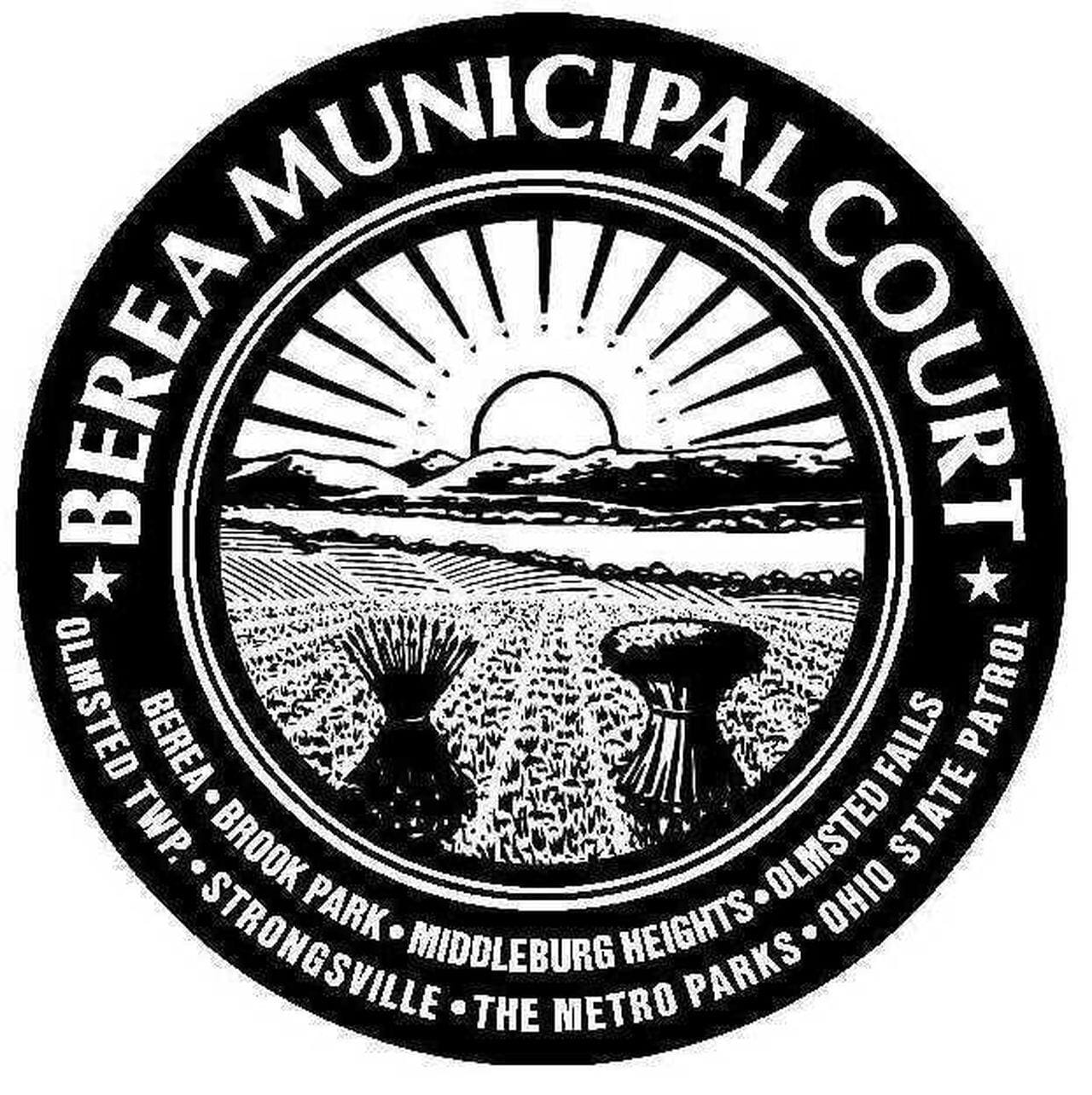Dealing with legal matters can be stressful. This comprehensive guide to the Berea Municipal Court in Cuyahoga County, Ohio, aims to simplify the process, providing essential information for residents of Berea, Brook Park, Middleburg Heights, Olmsted Falls, Olmsted Township, Strongsville, and those traveling on sections of I-71, I-480, and the Ohio Turnpike patrolled by the Ohio State Patrol and Metro Parks. Whether you’re dealing with a traffic ticket, a minor offense, or a small claims dispute, this guide will help you navigate the Berea Municipal Court system.
Understanding the Court’s Reach
What Does the Berea Municipal Court Handle?
The Berea Municipal Court addresses a variety of legal issues. Its jurisdiction includes:
- Traffic Violations: From speeding tickets to parking violations, most traffic infractions within the court’s jurisdiction are handled here.
- Misdemeanors: The court handles less serious criminal offenses, such as disorderly conduct and public intoxication.
- Landlord-Tenant Disputes: Issues like evictions fall under the court’s purview.
- Small Claims: Disputes involving amounts typically under $3,000, such as minor contract breaches or property damage, are addressed in small claims court. For claims between $3,000 and $15,000, the main court division handles these.
This localized authority allows for efficient handling of common legal matters within the community. For more serious offenses (felonies), the court conducts preliminary hearings to determine if sufficient evidence exists to send the case to the Cuyahoga County Court of Common Pleas.
Court Contacts and Resources
Finding and Contacting the Court
The Berea Municipal Court is located at:
11 Berea Commons
Berea, OH 44017
Contact Information:
- Phone: (440) 826-5860
- Website (for basic information): cityofberea.org
For more detailed information about the Berea Municipal Court Berea OH or the Berea Municipal Court Ohio and its jurisdiction, explore the provided links. It’s always recommended to consult an attorney for specific legal advice, as court procedures and regulations can change.
| Method | Best For | Contact Information |
|---|---|---|
| Phone | General inquiries, scheduling, immediate assistance | (440) 826-5860 |
| In-Person | Filing documents, attending hearings | 11 Berea Commons, Berea, OH 44017 |
| Online | Initial research, potential access to certain records (availability may vary) | cityofberea.org, courtreference.com |
Who Runs the Court?
The court is led by Judge Sean Kilbane and Clerk of Courts Joe DeMio, both Strongsville residents elected in November 2023 to six-year terms. The Clerk of Courts is responsible for managing court records and scheduling. You can contact the Clerk’s office directly for assistance with specific inquiries. Downloadable forms are often available on the court website, streamlining some processes.
Accessing Court Records
Court records often contain sensitive information. While some records may be publicly accessible, others might be restricted due to privacy concerns or ongoing investigations. Contacting the court clerk directly is the best way to obtain specific instructions on accessing court records. Online access to some records may be available via the court’s website, searchable by case name, date range, and attorney information. Accessing records through third-party commercial databases (sometimes for a fee) is another option.
Looking Up Ohio Court Cases
How Can I Find Case Information?
Several methods exist for looking up court cases in Ohio, each with its own strengths and limitations:
- Online Court Portals: Many courts, including the Berea Municipal Court, have online portals for searching case information. These often provide direct access to dockets and case details. Berea’s online system allows searching by case name, date, or attorney information.
- County Clerk Websites: County Clerk websites are valuable resources for accessing court records within a specific county.
- Statewide Resources: The Ohio Attorney General’s office provides resources, including those through the Bureau of Criminal Investigation (BCI), for criminal background checks and other legal records. This is a reliable resource for official information.
- Commercial Databases: Third-party websites like CourtReference.com may offer broader search capabilities but often charge fees.
Effective Search Strategies
To refine your search and improve your chances of finding the specific information you need, consider the following:
- Use the Full Case Name: The most precise way to search is by using the complete and accurate case name (e.g., State of Ohio v. John Doe).
- Specify Date Ranges: Narrowing your search by filing date or hearing date helps filter irrelevant results.
- Utilize Attorney Information: If available, the attorney’s name or bar number can be a valuable search parameter.
- Include Party Names: Searching by the names of the parties involved (plaintiff and defendant) can be helpful, but be aware that common names could produce numerous results.
Remember, not all records are accessible online due to privacy regulations and ongoing investigations. Some commercial databases may require fees for access. If you need definitive legal advice or encounter difficulties accessing information, consulting a qualified legal professional is always recommended. This guide is for informational purposes only and doesn’t substitute for professional legal counsel.
Understanding Ohio Municipal Court Jurisdiction
What is Jurisdiction and Why Does it Matter?
Ohio’s municipal courts handle a significant portion of the state’s legal proceedings, acting as local hubs for less complex cases. Each municipal court’s authority (its jurisdiction) is limited to a specific geographic area, typically encompassing the municipalities and townships it serves. Understanding this jurisdictional framework is crucial for ensuring cases are filed correctly and legal processes are followed appropriately.
Types of Cases Handled by Municipal Courts
These courts handle a range of matters, including:
- Traffic Violations: Common driving infractions like speeding tickets and running red lights.
- Misdemeanors: Less serious criminal offenses, a step below felonies, like disorderly conduct and petty theft.
- Evictions: Landlord-tenant disputes involving unpaid rent, lease violations, and the legal removal of a tenant.
- Small Claims: Disputes concerning relatively small amounts of money (up to $3,000 in small claims court and up to $15,000 in the main court), offering a more streamlined process than a full lawsuit.
- Preliminary Hearings (Felonies): Though not fully adjudicated in municipal court, these hearings determine whether sufficient evidence exists to proceed with a felony case in the Common Pleas Court.
Finding the Right Court
Determining the correct municipal court for a specific case is essential. Resources for finding this information include:
- Ohio Revised Code Section 1901.02: This legal document outlines the specific jurisdictions of each municipal court, serving as the definitive source.
- Local Court Websites: Most municipal court websites clearly define the geographic areas they serve and the types of cases they handle, often offering user-friendly resources and search tools.
- Online Court Directories: Several online directories provide consolidated information about courts, streamlining the search process.
Note that each municipal court has its own defined boundaries. For instance, the Berea Municipal Court serves several communities, including Olmsted Falls, but it doesn’t have jurisdiction over cases arising in other parts of Ohio. This localized approach ensures access to justice at the community level while efficiently managing less complex legal matters. If you are unsure which court serves your specific community, online resources and court directories can be immensely helpful.
Which Court Serves Olmsted Falls?
Olmsted Falls and the Berea Municipal Court
Residents of Olmsted Falls seeking legal recourse will likely interact with the Berea Municipal Court. This court serves as the primary judicial venue for Olmsted Falls and several surrounding communities, including Berea, Brook Park, Middleburg Heights, Olmsted Township, and Strongsville. It also handles cases originating from the Ohio State Patrol’s jurisdiction within the area, including parts of I-71, I-480, and The Ohio Turnpike.
The Olmsted Falls Mayor’s Court: A Limited Role
While Olmsted Falls does have a Mayor’s Court, its function is limited to handling specific ordinance violations. Further research may be required to define the precise scope of its authority. For the vast majority of legal matters, residents of Olmsted Falls will engage with the Berea Municipal Court. The Mayor’s Court is located in the Olmsted Falls City Administration Building at 26100 Bagley Road. It’s advisable to contact them directly for information regarding their specific court schedule.
Reaching the Berea Municipal Court
The Berea Municipal Court, established in 1958, is located at:
11 Berea Commons
Berea, OH 44017
You can contact the court by phone at (440) 826-5860. For additional information, their website (cityofberea.org) can be a useful starting point, but confirm details directly with the court. Remember, specific court procedures can change, so always verify with the Berea Municipal Court or consult a legal professional for the most accurate and up-to-date guidance.
- Discover Long Black Pepper: Flavor & Health Benefits - April 25, 2025
- Shocking Twists: The Grownup Review: Unreliable Narration - April 25, 2025
- A Quiet Place Book vs Movie: A Deep Dive - April 25, 2025

















2 thoughts on “Berea Municipal Court (Cuyahoga County, OH): Your Guide to Court Procedures, Records, and Contact Information”
Comments are closed.